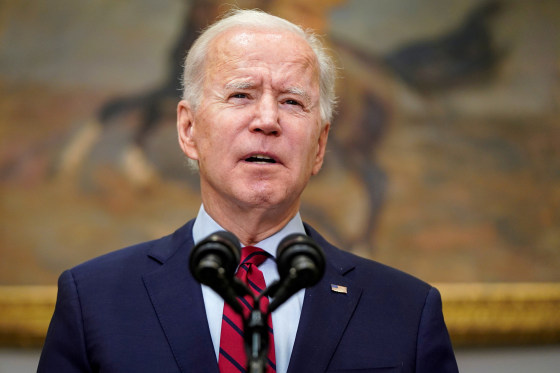WASHINGTON — President Joe Biden plans to discuss migration and economic cooperation in a virtual meeting with Mexican President Andrés Manuel López Obrador on Monday.
The White House said the discussion will also delve into how their two countries can work together on recovering from the Covid-19 pandemic and joint development efforts in Southern Mexico and Central America.
The Mexican president plans to propose a new migrant labor program that could allow 600,000 to 800,000 Mexican and Central American immigrants a year to work legally in the U.S., The Associated Press reported.
López Obrador is also expected to ask Biden to consider sharing part of the U.S. Covid-19 vaccine supply with Mexico, according to Reuters.
The meeting comes as congressional Democrats look to advance a comprehensive immigration measure backed by Biden that would provide a eight-year pathway to citizenship for undocumented immigrants who have been living in the U.S. and arrived by January of this year.
The measure also would expand the refugee resettlement program and deploy more technology to the Southern border.
While previous attempts at massive immigration reform have failed under both Republican and Democratic administrations, the Biden White House has signaled support for breaking the legislation into pieces to improve the chances of passing some measures.
A few days after his inauguration, Biden spoke with López Obrador by phone and outlined plans to reduce migration "by addressing its root causes, increasing resettlement capacity and lawful alternative immigration pathways, improving processing at the border to adjudicate requests for asylum, and reversing the previous administration’s draconian immigration policies,” the White House said.
Last month, Biden took several executive actions to undo some Trump administration immigration policies, including the creation of a task force to reunite children who were separated from their parents under Trump's "zero tolerance" policy.
He also ordered reviews of the previous administration's "Remain in Mexico" policy, which has left tens of thousands of asylum-seekers, most of them Central American, living in poor conditions in northern Mexico, and its "public charge" rule, which has punished legal immigrants who use public benefits by hurting their chances to receive green cards.

